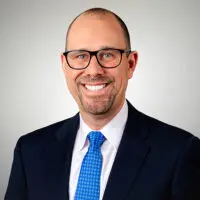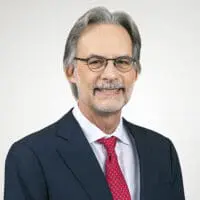Publication
U.S. Government Revives DOJ-HHS False Claims Act Working Group
By James P. Melendres, Sarah E. Delaney, Claudia E. Stedman, and Paul J. Giancola
On July 2, 2025, the U.S. Department of Justice (DOJ) and the U.S. Department of Health and Human Services (HHS) announced the revival of the DOJ-HHS False Claims Act (FCA) Working Group (the Working Group).1 The Working Group was previously formed in December 2020 to combat health care fraud arising from the COVID-19 pandemic. In this iteration, the Working Group will focus more broadly on health care fraud related to the Trump Administration’s current enforcement priorities, as identified in a June 2025 memorandum from Assistant Attorney General, Brett Shumate.2
What To Know About the Structure of the Working Group
The Working Group will be comprised of leadership from across HHS and the DOJ.3 It will be jointly led by the HHS General Counsel, Chief Counsel to the HHS Office of Inspector General (HHS-OIG), and the Deputy Assistant Attorney General of the DOJ’s Commercial Litigation Branch. It will also have members from the Centers for Medicare & Medicaid Services (CMS) Center for Program Integrity, the DOJ’s Civil Division, and other designees representing the U.S. Attorneys’ Offices.
The Working Group will likely encourage cross-agency collaboration on FCA investigations and enforcement actions. For example, it is anticipated that the HHS will make referrals to the DOJ for potential FCA violations that reflect the Working Group’s enforcement priorities. The agencies will then “maximize cross-agency collaboration to expedite ongoing investigations” related to these priorities and to identify any new leads for investigations by, among other things, leveraging HHS resources such as “enhanced data mining and assessment of HHS and HHS-OIG report findings.”4
Crucially, the Working Group will collaborate to assess FCA enforcement options, including whether DOJ should move to dismiss a qui tam complaint under 31 U.S.C. § 3730(c)(2)(A).5 This new approach is significant because it indicates that the DOJ may look to seek dismissal of complaints filed by whistleblowers that do not align with the government’s enforcement priorities.
Enforcement Priorities of the Revised Working Group
The DOJ and HHS announced several priority enforcement areas for the Working Group. The first priority will focus on the FCA, as outlined in the June 2025 memorandum:6
- Combatting illegal private-sector diversity, equity, and inclusion (DEI) programs by recipients of federal funds or entities who submit claims for federal payment; and
- Investigating false claims submitted to federal health care programs for any non-covered services related to impermissible gender transition or gender dysphoria treatments.
In addition, the group announced six other priority enforcement areas:7
- Medicare Advantage;
- Drug, device, or biologics pricing, including arrangements for discounts, rebates, service fees, and formulary placement and price reporting;
- Barriers to patient access to care, including violations of network adequacy requirements;
- Kickbacks related to drugs, medical devices, durable medical equipment, and other products paid for by federal healthcare programs;
- Materially defective medical devices that impact patient safety; and
- Manipulation of electronic health records systems to drive inappropriate utilization of Medicare covered products and services.
Takeaways
The revival of the Working Group indicates that the U.S. government intends to continue focusing on and prioritizing enforcement of the FCA in the healthcare sector. The Working Group’s enforcement priorities also expand the traditional scope of FCA investigations into several new areas, such as DEI policies and transgender care. The expanded focus of enforcement initiatives could leave less resources available for more traditional DOJ and OIG initiated FCA actions for overbilling of federal healthcare programs.
The DOJ and HHS will continue encouraging whistleblowers and healthcare contractors to identify and report any potential FCA violations, both as to these specific priority enforcement areas and as to fraud, waste, and abuse more generally.
Given the Working Group’s stated priorities and the June 2025 memorandum, there is the potential that CMS may increase utilization of payment suspensions for healthcare providers. Under 42 C.F.R. § 405.371 and its accompanying regulations, CMS may withhold payments from federal payors to contractors when it has consulted with HHS-OIG and/or the DOJ and has determined that a credible allegation of fraud exists against that healthcare provider. Payment suspensions can last months to years, and are disruptive for healthcare providers because during the payment suspension, providers will not be reimbursed for services rendered to Medicare beneficiaries. Additionally, repeated payment suspensions may be a pre-curser to an FCA investigation.
Notably, the June Memorandum is silent regarding HHS-OIG’s use of Corporate Integrity Agreements (CIAs), which impose compliance obligations on contractors over a period of years that frequently accompany FCA resolutions. As of now, it is too early to tell how the Trump Administration and the Working Group will approach and utilize CIAs in resolving FCA cases.
In light of this announcement and the June 2025 DOJ memorandum, entities in the healthcare space should reevaluate and, where appropriate, consider enhancing internal compliance with federal regulations to ensure their program covers these new priority enforcement areas. Any compliance program should include comprehensive guidance, ongoing monitoring as to these enforcement priorities, and frequent training for all employees. Additionally, companies should consider developing and promoting clear protocols for addressing potential whistleblower complaints, including the creation of additional avenues for internal reporting of concerns and prompt investigation into any issues raised. With these stated priorities, the Working Group may encourage healthcare entities to self-disclose potential violations of federal regulations in an effort to mitigate FCA liability.
Healthcare entities should consider engaging with legal counsel to evaluate their internal compliance programs and determine whether contractors have any vulnerabilities with respect to FCA liability. https://www.justice.gov/civil/media/1404046/dl?inline https://www.justice.gov/jm/jm-4-4000-commercial-litigation#4-4.111
Footnotes
-
HHS Press Release, DOJ-HHS False Claims Act Working Group (July 2, 2025) (the “Press Release”), https://www.hhs.gov/press-room/hhs-doj-false-claims-act-working-group.html.
-
See Brett A. Shumate, Civil Division Enforcement Priorities (June 11, 2025) (the “DOJ Memorandum”), https://www.justice.gov/civil/media/1404046/dl?inline.
-
Press Release, at 1.
-
Id., at 2.
-
See also Justice Manual Section 4-4.111, DOJ Dismissal of a Civil Qui Tam Action, https://www.justice.gov/jm/jm-4-4000-commercial-litigation#4-4.111.
-
DOJ Memorandum, at 1-3.
-
Press Release, at 1-2.
About Snell & Wilmer
Founded in 1938, Snell & Wilmer is a full-service business law firm with more than 500 attorneys practicing in 17 locations throughout the United States and in Mexico, including Phoenix and Tucson, Arizona; Los Angeles, Orange County, Palo Alto and San Diego, California; Denver, Colorado; Washington, D.C.; Boise, Idaho; Las Vegas and Reno-Tahoe, Nevada; Albuquerque, New Mexico; Portland, Oregon; Dallas, Texas; Salt Lake City, Utah; Seattle, Washington; and Los Cabos, Mexico. The firm represents clients ranging from large, publicly traded corporations to small businesses, individuals and entrepreneurs. For more information, visit swlaw.com.




